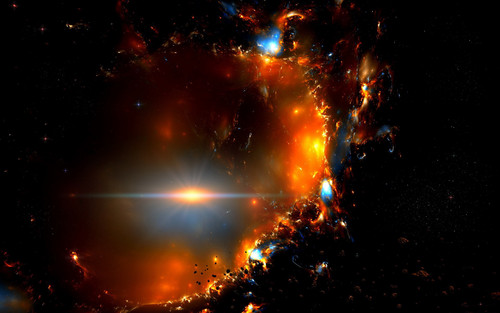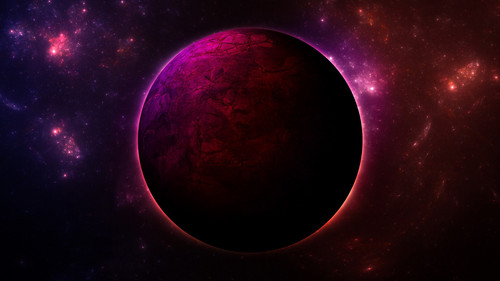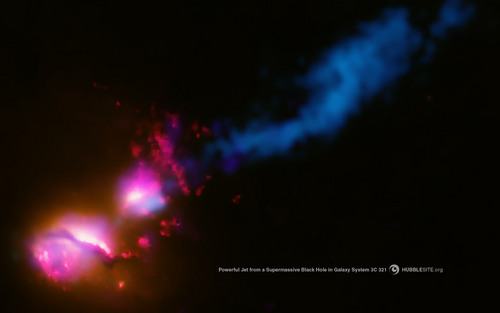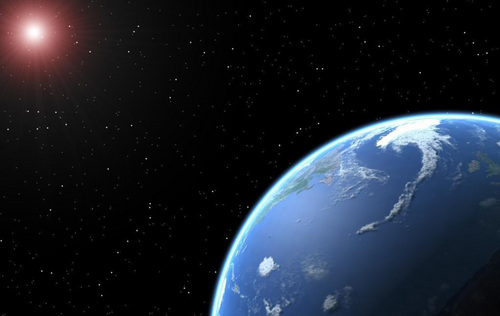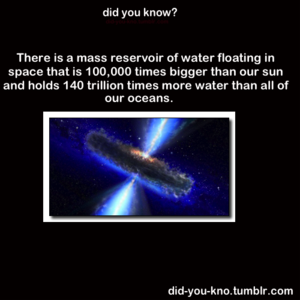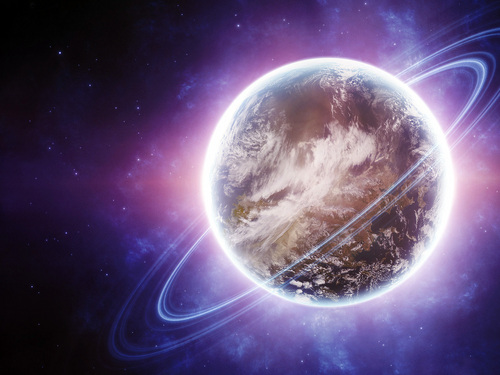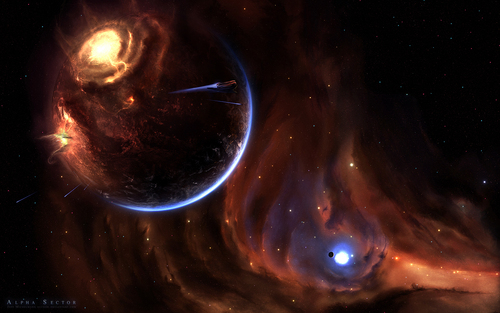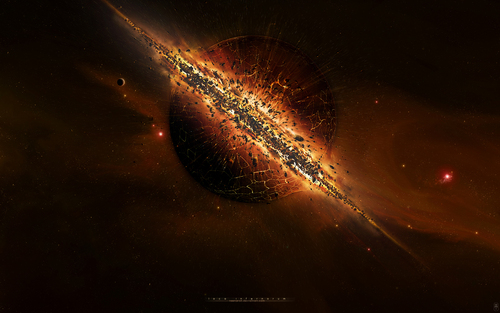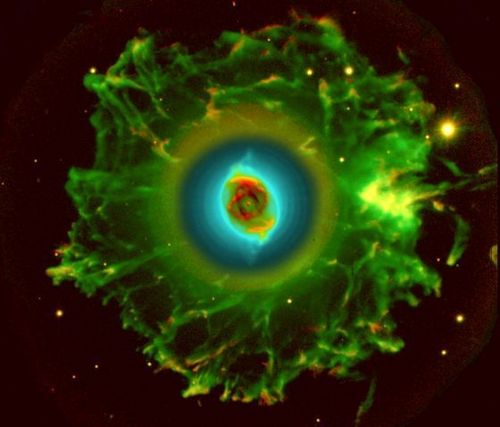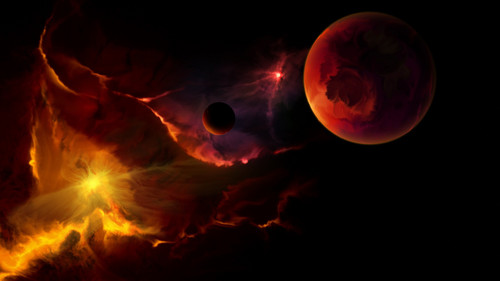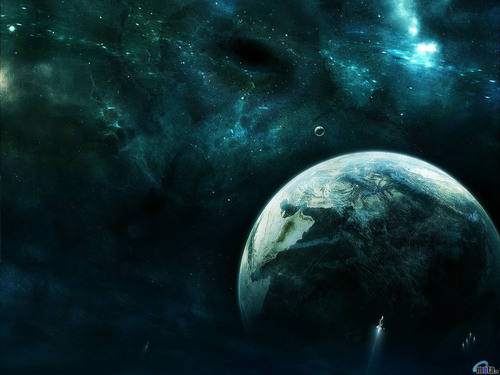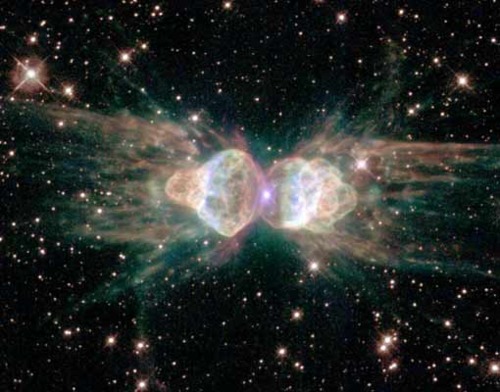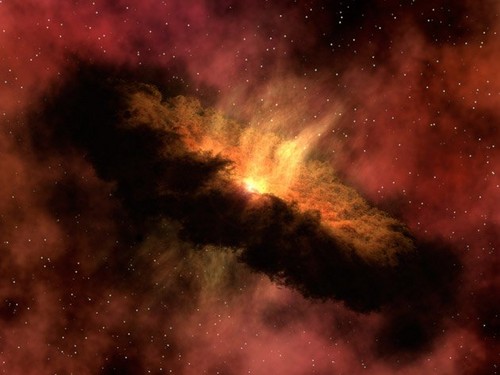There has been many, many rumors going around about Pluto being a planet o not. I just found out a few weeks fa the official new.
One of the most controversial subjects in our solar system is whether Pluto should be a planet.In 2006, Pluto was officially demoted from "planet" to "dwarf planet." But the debate's flared up again, as the New Horizons probe is set to become the first spacecraft to visit Pluto on Tuesday.Before that happens, we need to get one thing clear: there are very good reasons why Pluto isn't a planet."There are eight bodies in the solar system that dominate the others," says Mike Brown, the Caltech astronomer who in 2005 discovered Eris — a dwarf planet più massive than Pluto — and wrote How I Killed Pluto and Why It Had It Coming. "Those eight are planets, and the other thousands are not."
His point isn't just that the eight planets are orders of magnitude bigger than Pluto (though they are). Equally important is the fact that in terms of size and location, Pluto fits neatly in a group with dwarf planets like Eris, Haumea, Makemake, and likely thousands of undiscovered rocks that orbit in the Kuiper belt, outside Neptune. If we really want to call Pluto a planet, our lista of planets is going to be expanding dramatically in future years.Pluto is much, much smaller than other planetsThe whole idea of a "planet" is, admittedly, an arbitrary category. Our solar system has thousands of objects that orbit the sun, and fundamentally they're not all that different from one another.
But if te want to single out a handful of these objects as particularly significant ones — i.e., "planets" — then it's clear that Pluto is very different. The simplest reason is Pluto's tiny size
Pluto is just one of many similarly sized Kuiper cintura objects
If Pluto were its current size but a unique object — the only object of its kind out past Neptune — that would be one thing. But in 1992, astronomers discovered another tiny object out past Neptune, the first one discovered in what's now the Kuiper belt.
"Most astronomers, da that point, realized that Pluto had probably been mistakenly classified," Brown says. "It was pretty clear that Pluto was not going to be a singular object." In the years since, più than a thousand Kuiper cintura objects have been found.
What finally led the International Astronomical Union to reconsider Pluto's status was Brown's discovery of another Kuiper cintura object, Eris, that was actually a bit più massive than Pluto. Aware that this would probably just be the first of many, the IAU voted to approve a new definition that would eliminate all of these objects from the lista of planets — rather than continue to add più and più planets in future years.The IAU's new definition of planet has three requirements: an object has to orbit the sun, be massive enough so that the force of its own gravity made it round, and be able to "clear the neighborhood around its orbit" to be a planet.
This last requirement is the one Pluto doesn't meet. The IAU made a special intermediate category, called "dwarf planets," for objects like Pluto and Eris that meet the first two conditions but not the third.
The third requirement is admittedly pretty vague, and has come under fuoco from some astronomers. "It's poorly worded," Brown says, "but the concept itself is rock solid."
The basic idea is that a planet can't be part of a nube, nuvola of similarly sized debris, like the asteroid cintura o the Kuiper belt. A planet has to be large enough that over time it'll clear this nube, nuvola away, with the debris coalescing to the planet due to the force of the object's gravity. This is how Earth and the other planets grew larger billions of years ago, and it's a qualitative difference between those eight bodies and the clouds of debris in the asteroid and Kuiper belts.
We only think of Pluto as a planet because of historical accident
Over time, the lista of planets has varied widely. In the 18th and early 19th centuries, any new object that orbited the sun was considered a planet: Uranus and Neptune, as well as asteroids like Vesta and Pallas.
Around the mid-19th century, however, astronomers realized that some of these were among hundreds of asteroids clustered in a belt. They were all dramatically smaller than the planets, so they were eliminated from the lista of them.
In retrospect, Pluto's 1930 discovery and 2006 demotion has followed the exact same pattern. At first, Pluto was thought to be one of a kind. Eventually, though, it was found to be part of a nube, nuvola of debris (one that actually resembles the asteroid belt), and was consequently demoted.Now, there are some più substantial arguments against the IAU's decision. Some astronomers point out that the difficulty of clearing one's neighborhood depends on the size of a planet's star, and its distance from it — so the same object could be a planet in one area but a dwarf planet in another.
Another response is questioning the idea of defining "planet" in the first place. "'Planet' is a culturally defined word that has changed its meaning over and over again," Harvard astronomer and historian Owen Gingerich detto during a 2014 panel. "My feeling is that in retrospect, the IAU should not have attempted to define the word 'planet.'" da taking on this task, the IAU may have effectively cut off funding for study of Pluto and the other dwarf planets, and made it so that students are less likely to learn about them.
Even so, there are no known ongoing efforts within the IAU to reconsider Pluto's status. There's a vocal minority that opposes the 2006 decision, but most astronomers agreed with it — and, più than anything, they want to sposta on, so that this issue dies among the public as soon as possible. As Brown put it, "The IAU really wants to never have to talk about this again."
Pluto is still fascinating even if it's not technically a "planet"
The craft will tell us all about a strange, poorly understood place that we've never seen before. "Pluto seems to be at the intersection of many important scientific domande about the accretion of planets and the loss of atmospheres, like the Earth experienced early in its history," New Horizons' principal investigator, Alan Stern, recently told me. "We know the Earth went through the stage of growth that Pluto stopped at. This will help us connect the dots."There's no good reason to let an argument over the term we use to describe Pluto overshadow that. Though there are some big differences between the planets and Pluto, the key thing is that "planet" is a category created da humans. It doesn't exist in nature.
The solar system is made up of tons of debris, some of which has coalesced into especially large objects over time, and some of which hasn't. What we soon learn about Pluto will be no less valuable because we don't put it in a special category. Instead of worrying about this, let's celebrate New Horizons' impending arrival to a fascinating new world.
So as te can see Pluto is not really a planet and I hope this answered some of yours domande and that this taught te a thing o two about Pluto.
One of the most controversial subjects in our solar system is whether Pluto should be a planet.In 2006, Pluto was officially demoted from "planet" to "dwarf planet." But the debate's flared up again, as the New Horizons probe is set to become the first spacecraft to visit Pluto on Tuesday.Before that happens, we need to get one thing clear: there are very good reasons why Pluto isn't a planet."There are eight bodies in the solar system that dominate the others," says Mike Brown, the Caltech astronomer who in 2005 discovered Eris — a dwarf planet più massive than Pluto — and wrote How I Killed Pluto and Why It Had It Coming. "Those eight are planets, and the other thousands are not."
His point isn't just that the eight planets are orders of magnitude bigger than Pluto (though they are). Equally important is the fact that in terms of size and location, Pluto fits neatly in a group with dwarf planets like Eris, Haumea, Makemake, and likely thousands of undiscovered rocks that orbit in the Kuiper belt, outside Neptune. If we really want to call Pluto a planet, our lista of planets is going to be expanding dramatically in future years.Pluto is much, much smaller than other planetsThe whole idea of a "planet" is, admittedly, an arbitrary category. Our solar system has thousands of objects that orbit the sun, and fundamentally they're not all that different from one another.
But if te want to single out a handful of these objects as particularly significant ones — i.e., "planets" — then it's clear that Pluto is very different. The simplest reason is Pluto's tiny size
Pluto is just one of many similarly sized Kuiper cintura objects
If Pluto were its current size but a unique object — the only object of its kind out past Neptune — that would be one thing. But in 1992, astronomers discovered another tiny object out past Neptune, the first one discovered in what's now the Kuiper belt.
"Most astronomers, da that point, realized that Pluto had probably been mistakenly classified," Brown says. "It was pretty clear that Pluto was not going to be a singular object." In the years since, più than a thousand Kuiper cintura objects have been found.
What finally led the International Astronomical Union to reconsider Pluto's status was Brown's discovery of another Kuiper cintura object, Eris, that was actually a bit più massive than Pluto. Aware that this would probably just be the first of many, the IAU voted to approve a new definition that would eliminate all of these objects from the lista of planets — rather than continue to add più and più planets in future years.The IAU's new definition of planet has three requirements: an object has to orbit the sun, be massive enough so that the force of its own gravity made it round, and be able to "clear the neighborhood around its orbit" to be a planet.
This last requirement is the one Pluto doesn't meet. The IAU made a special intermediate category, called "dwarf planets," for objects like Pluto and Eris that meet the first two conditions but not the third.
The third requirement is admittedly pretty vague, and has come under fuoco from some astronomers. "It's poorly worded," Brown says, "but the concept itself is rock solid."
The basic idea is that a planet can't be part of a nube, nuvola of similarly sized debris, like the asteroid cintura o the Kuiper belt. A planet has to be large enough that over time it'll clear this nube, nuvola away, with the debris coalescing to the planet due to the force of the object's gravity. This is how Earth and the other planets grew larger billions of years ago, and it's a qualitative difference between those eight bodies and the clouds of debris in the asteroid and Kuiper belts.
We only think of Pluto as a planet because of historical accident
Over time, the lista of planets has varied widely. In the 18th and early 19th centuries, any new object that orbited the sun was considered a planet: Uranus and Neptune, as well as asteroids like Vesta and Pallas.
Around the mid-19th century, however, astronomers realized that some of these were among hundreds of asteroids clustered in a belt. They were all dramatically smaller than the planets, so they were eliminated from the lista of them.
In retrospect, Pluto's 1930 discovery and 2006 demotion has followed the exact same pattern. At first, Pluto was thought to be one of a kind. Eventually, though, it was found to be part of a nube, nuvola of debris (one that actually resembles the asteroid belt), and was consequently demoted.Now, there are some più substantial arguments against the IAU's decision. Some astronomers point out that the difficulty of clearing one's neighborhood depends on the size of a planet's star, and its distance from it — so the same object could be a planet in one area but a dwarf planet in another.
Another response is questioning the idea of defining "planet" in the first place. "'Planet' is a culturally defined word that has changed its meaning over and over again," Harvard astronomer and historian Owen Gingerich detto during a 2014 panel. "My feeling is that in retrospect, the IAU should not have attempted to define the word 'planet.'" da taking on this task, the IAU may have effectively cut off funding for study of Pluto and the other dwarf planets, and made it so that students are less likely to learn about them.
Even so, there are no known ongoing efforts within the IAU to reconsider Pluto's status. There's a vocal minority that opposes the 2006 decision, but most astronomers agreed with it — and, più than anything, they want to sposta on, so that this issue dies among the public as soon as possible. As Brown put it, "The IAU really wants to never have to talk about this again."
Pluto is still fascinating even if it's not technically a "planet"
The craft will tell us all about a strange, poorly understood place that we've never seen before. "Pluto seems to be at the intersection of many important scientific domande about the accretion of planets and the loss of atmospheres, like the Earth experienced early in its history," New Horizons' principal investigator, Alan Stern, recently told me. "We know the Earth went through the stage of growth that Pluto stopped at. This will help us connect the dots."There's no good reason to let an argument over the term we use to describe Pluto overshadow that. Though there are some big differences between the planets and Pluto, the key thing is that "planet" is a category created da humans. It doesn't exist in nature.
The solar system is made up of tons of debris, some of which has coalesced into especially large objects over time, and some of which hasn't. What we soon learn about Pluto will be no less valuable because we don't put it in a special category. Instead of worrying about this, let's celebrate New Horizons' impending arrival to a fascinating new world.
So as te can see Pluto is not really a planet and I hope this answered some of yours domande and that this taught te a thing o two about Pluto.

A photograph of the Hubble Ultra Deep Field. Every single little dot of light you see in this picture is an entire galaxy. Over 10,000 in this image alone.


